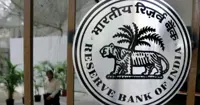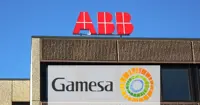Steelmakers, miners at war over iron ore ‘cartelisation’
04 Feb 2014
The Supreme Court's restrictions on iron ore mining in the country may be well intentioned, but it has led to a fallout that the court probably did not foresee. Steel and sponge iron factories in Karnataka have moved the apex court alleging price distortions in the e-auctions of iron ore due to ''cartelisation'' by private miners.
Steel makers, including JSW Steel and Kalyani Steel, on Monday filed an affidavit in the apex court demanding regulation of base pricing in the e-auction. The court will hear the case on 17 February.
Three industry bodies – the Karnataka Iron and Steel Manufacturers' Association, the Karnataka Sponge Iron Manufacturers' Association and the Association of Indian Mini-Blast Furnaces, along with the Bangalore Chamber of Commerce & Industry, have also decided to file an application before the Competition Commission of India on the issue.
Meanwhile, the two sides – iron ore producers and users – are fighting their causes through virulent advertising campaigns. Agitated by the allegations of cartelisation by steel industry associations publicised through ads, Karnataka-based iron ore miners are preparing to retaliate in a similar manner. The Federation of Indian Mineral Industries (FIMI), an association of mining companies, is planning to launch a counter advertisement campaign.
The iron and steel manufacturers say that except for state-owned NMDC Ltd, all other miners in the controversial sector have formed a cartel to jack up the base price of iron ore at the e-auctions. They have sought the appointment of a retired Supreme Court or high court judge to act as the regulator for fixing base or minimum bid prices as long as the short supply of the vital infrastructure material continues under the apex court orders restricting its production for widespread illegalities, including massive environmental damage and unauthorised exports.
In a statement, the four organisations said that in the past four months, owing to ''this cartelisation, iron ore fines prices have doubled''.
The base price of NMDC fines, having 61 per cent iron content, has moved from Rs2,000 to Rs2,220 a tonne since April last year; but the base prices of private mining companies were Rs2,250 to Rs2,475 a tonne as of September 2013 – and has now been pushed up to Rs5,000 per tonne for a similar grade of ore.
Seshagiri Rao, joint managing director of JSW Steel, said the base price of Rs5,000 per tonne of iron ore was unheard of in Karnataka even when the international prices touched $200 (Rs12,600) a tonne in 2008.
''The high base price by private companies is sort of cartelisation as state-owned companies have resisted hiking prices due to a fall in the international markets,'' he said. The high base price for 61 per cent Fe grade iron ore will now cost Rs7,000 a tonne if the royalty, transportation and local taxes are included, he added
The Supreme Court had allowed e-auction of iron ore in 2011 after partially lifting an iron ore mining ban in Karnataka. Since October 2011 MSTC Ltd has been conducting the auctions. In the beginning, the Apex court-appointed monitoring committee was fixing the base prices depending upon the prices of NMDC.
However, this practice was discontinued and private mining companies were allowed fix the base price.
.webp)






.webp)























